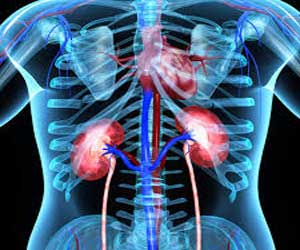- Home
- Editorial
- News
- Practice Guidelines
- Anesthesiology Guidelines
- Cancer Guidelines
- Cardiac Sciences Guidelines
- Critical Care Guidelines
- Dentistry Guidelines
- Dermatology Guidelines
- Diabetes and Endo Guidelines
- Diagnostics Guidelines
- ENT Guidelines
- Featured Practice Guidelines
- Gastroenterology Guidelines
- Geriatrics Guidelines
- Medicine Guidelines
- Nephrology Guidelines
- Neurosciences Guidelines
- Obs and Gynae Guidelines
- Ophthalmology Guidelines
- Orthopaedics Guidelines
- Paediatrics Guidelines
- Psychiatry Guidelines
- Pulmonology Guidelines
- Radiology Guidelines
- Surgery Guidelines
- Urology Guidelines
Caffeinated drinks during exercise may cause kidney damage, reveals study

Drinking sugary caffeinated soft drinks during exercise can cause kidney injury reveals a recent study. The study instead suggested water as an ideal workout drink. The study was recently published in the American Journal of Physiology-Regulatory, Integrative and Comparative Physiology.
After the session in which they were given the soft drink, participants had higher levels of creatinine in the blood and a lower "glomerular filtration rate" -- both of which are markers for kidney injury.
These temporary changes did not occur when participants drank water during exercise, the researchers said in a news release from the American Physiological Society.
The investigators also found that during and after drinking the soft drink, participants had higher blood levels of vasopressin, a hormone that raises blood pressure. They also were mildly dehydrated, noted study corresponding author Zachary Schlader, an assistant professor of exercise and nutrition science, and his colleagues.
"The consumption of soft drinks during and following exercise in the heat does not rehydrate," the researchers reported. "Thus, consuming soft drinks as a rehydration beverage during exercise in the heat may not be ideal."
In the workout sessions, participants spent 30 minutes on a treadmill, followed by three 5-minute lifting, dexterity and sledgehammer swinging activities. Then they rested for 15 minutes while drinking 16 ounces of either the soft drink or water.
After the break, they repeated the cycle three more times over a total of four hours. Before leaving the lab, participants were given more of their assigned beverage to drink before having any other fluids.
Before, immediately after, and 24 hours after each trial, the researchers measured the participants' body temperature, heart rate, blood pressure, weight and markers of kidney injury.
There were greater increases from pre-exercise in serum copeptin, a stable marker of vasopressin, at postexercise in the Soft Drink trial (P < 0.02) than the Water trial.
These findings indicate that consuming a soft drink during and following exercise in the heat induces AKI, likely via vasopressin-mediated mechanisms.
For further reference log on to :
https://doi.org/10.1152/ajpregu.00351.2018

Disclaimer: This site is primarily intended for healthcare professionals. Any content/information on this website does not replace the advice of medical and/or health professionals and should not be construed as medical/diagnostic advice/endorsement or prescription. Use of this site is subject to our terms of use, privacy policy, advertisement policy. © 2020 Minerva Medical Treatment Pvt Ltd